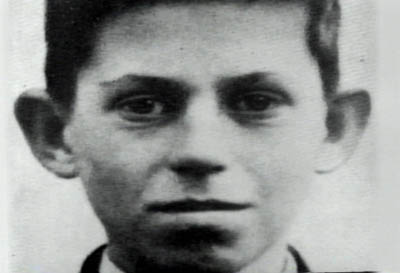Keith Richards
(1943-Present)


DATE OF BIRTH: December 18,
1943
BIRTHPLACE: Dartford, England
EDUCATION: Expelled from
Dartford Technical School; Later attended Sidcup Art School
RELATIONS: Doris and Bert
Richards (parents); Patti Hansen (wife); Marlon and Dandelion (aka Angela) (offspring with Anita Pallenberg); Theodora and Alexandra (offspring with Patti Hansen)
As founding member and principal guitarist of the Rolling Stones, Richard occupies a unique place in rock's pantheon. Although not a recognized frontman, his incisive rhythm work, initially modelled on Chuck Berry, has provided the template for many of his group's finest moments. He became the partner of Mick Jagger when a need for original material arose, and although their early efforts betrayed an immaturity, their work flourished on completing 'The Last Time' in 1965. The first in a series of excellent singles, including '(I Can't Get No) Satisfaction', 'Get Off Of My Cloud' (both 1965) and 'Paint It Black' (1966), Richards' riffs provided the cornerstone to a sound which relied on atmosphere, rather than melody, for effect. Despite this, his name was attached toToday's Pop Symphony, wherein the Aranbee Pop Symphony Orchestra performed contemporary pop hits under his 'direction'. The project was doubtlessly inspired by manager Andrew Loog Oldham, as it mirrored his own similar ventures, but the album was nonetheless the first to bear Richards' name without the Stones. The group survived what was, for the Stones, an awkward psychedelic era (and its attendant arrests) by reconnecting with R&B, which had provided their initial inspiration. Richard's riffs for 'Jumping Jack Flash' (1968), 'Honky Tonk Women' (1969) and 'Brown Sugar' (1971) were instantly recognizable and their international success enhanced an artistically fertile period. Richard's drug dependency, which would bedevil the guitarist throughout the 70s, blighted his private life, but musically there continued to be several highlights including Exile On Main Street, a much-lauded album recorded at his French villa, and Some Girls, the group's controversial post-punk set. His obligatory vocal tracks included 'Happy' and 'Before They Make Me Run', and such performances were eagerly awaited by a loyal core of aficionados. Richard completed several solo studio sessions during 1976 and 1977, but their sole product was the belated Christmas single, 'Run Rudolph Run' (1979). That same year he was convicted of heroin charges by a Toronto court. His penance was a charity concert for which he formed the New Barbarians with Ron Wood, Stanley Clarke, Ian McLagan and saxophonist Bobby Keys. The group also undertook a tour of the USA and at the Knebworth Festival in England, before Richard resumed his commitment to the Rolling Stones. He appeared at Live Aid in 1985 as part of the ramshackle trio of Bob Dylan and Ron Wood
A feud
with Mick Jagger reached its peak in 1986, threatening the future of the
group. Richard subsequently worked with Chuck Berry and Aretha Franklin
before beginning his first official solo album. Talk Is Cheap offered
the sparkle and commitment missing from several latter-day Stones' releases,
and in 'Don't Take It So Hard' Keith offered an invective to his estranged
partner. However, the pair were later reconciled and worked on the
parent group's
Steel Wheels and the mammoth
USA and European tour which followed. Richards has always argued
that the Stones should be his prime vehicle, but their increasingly disparate
status would suggest that the guitarist's solo career may yet assume paramount
importance. If Jagger decides to call it a day, it is Richards the
man with ten lives that will prosper.
Last Updated: 08.28.15